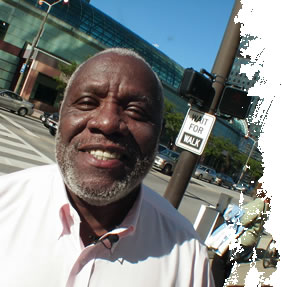
Out of the frying pan… into the fire
 Just when it appeared that things could not get any worse for Alternatives Agency (a halfway house located in my ward on E. 55th Street near Hough) they did. The former director of the facility recently pled guilty to using the agency as an ATM to illegally enrich himself and a number of his business associates. So this past May a new director, Thomas Griveas, was brought in to set the agency back on course. The problem is that it seems as if Griveas knows little, if anything, about prisoner reentry, and perhaps less about politics and diplomacy.
Just when it appeared that things could not get any worse for Alternatives Agency (a halfway house located in my ward on E. 55th Street near Hough) they did. The former director of the facility recently pled guilty to using the agency as an ATM to illegally enrich himself and a number of his business associates. So this past May a new director, Thomas Griveas, was brought in to set the agency back on course. The problem is that it seems as if Griveas knows little, if anything, about prisoner reentry, and perhaps less about politics and diplomacy. As part of his restructuring, he summarily (and without notice) fired 16 people who worked at the agency monitoring the residents and providing other necessary services. And here’s where Griveas tries to get real clever: While he says he has made an offer to hire back some of the terminated employees, he also pointed out that 13 of them have a prior criminal background. So, guess what’s going to happen when they apply to the new security company he’s bringing aboard? “Sorry, we don’t hire people with criminal backgrounds.”
He also stated to Ward 7 Councilman TJ Dow that, by law, he could not hire individuals with a felony record to work at the facility … which is a flat-out falsehood. If the facility housed individuals returning from a federal prison that would be the case, but the agency in question doesn’t have a federal contract, therefore he can hire from this population.
In 2007, then-President George Bush signed the Second Chance Act into law, which calls for government and private entities to allow people who’ve turned their lives around an opportunity to make a living once they’ve exited prison. Griveas has stated that having formerly incarcerated persons (or those with a felony conviction) working at the agency is akin to “the wolves guarding the hen house.” Methinks he’s going to regret that statement … sooner rather than later. To use such a pejorative term to describe individuals who, according to all accounts, were doing an outstanding job is not only unfair, but it’s also unconscionable. How long should their pasts be held against them —for 10, 20, or 30 years? Forever?
Since it’s founding, America has had (and still has, to some degree) a serious problem with alcohol addiction; and it wasn’t until Alcoholics Anonymous was formed in June of 1935 that solutions began to be formulated. This reason was simple: The people with the problem knew best how to solve it. The same is true for formerly incarcerated persons: Some people with felony backgrounds know how to reach out and help others who are just exiting prison … I know that I’ve had some degree of success doing so.
Virtually every successful agency in the county attempting to impact on prisoner reentry hires formerly incarcerated persons … as peer counselors and case managers — what part of this doesn’t Griveas get? Or, is it that, since his background is in corrections, he really doesn’t believe people can change? His “wolves” comment certainly indicates such a predisposition. And if that is the case, why the hell is he working at an agency whose mission it is to help people change?
The best outcome would be for this agency to shutter its doors, dissolve its board, and let a known, quality provider take over operations at some point down the line. There really isn’t any other viable option at this point.
From Cool Cleveland contributor Mansfield B. Frazier mansfieldfATgmail.com
Frazier's From Behind The Wall: Commentary on Crime, Punishment, Race and the Underclass by a Prison Inmate is available again in hardback. Snag your copy and have it signed by the author by visiting http://www.frombehindthewall.com.
(:divend:)